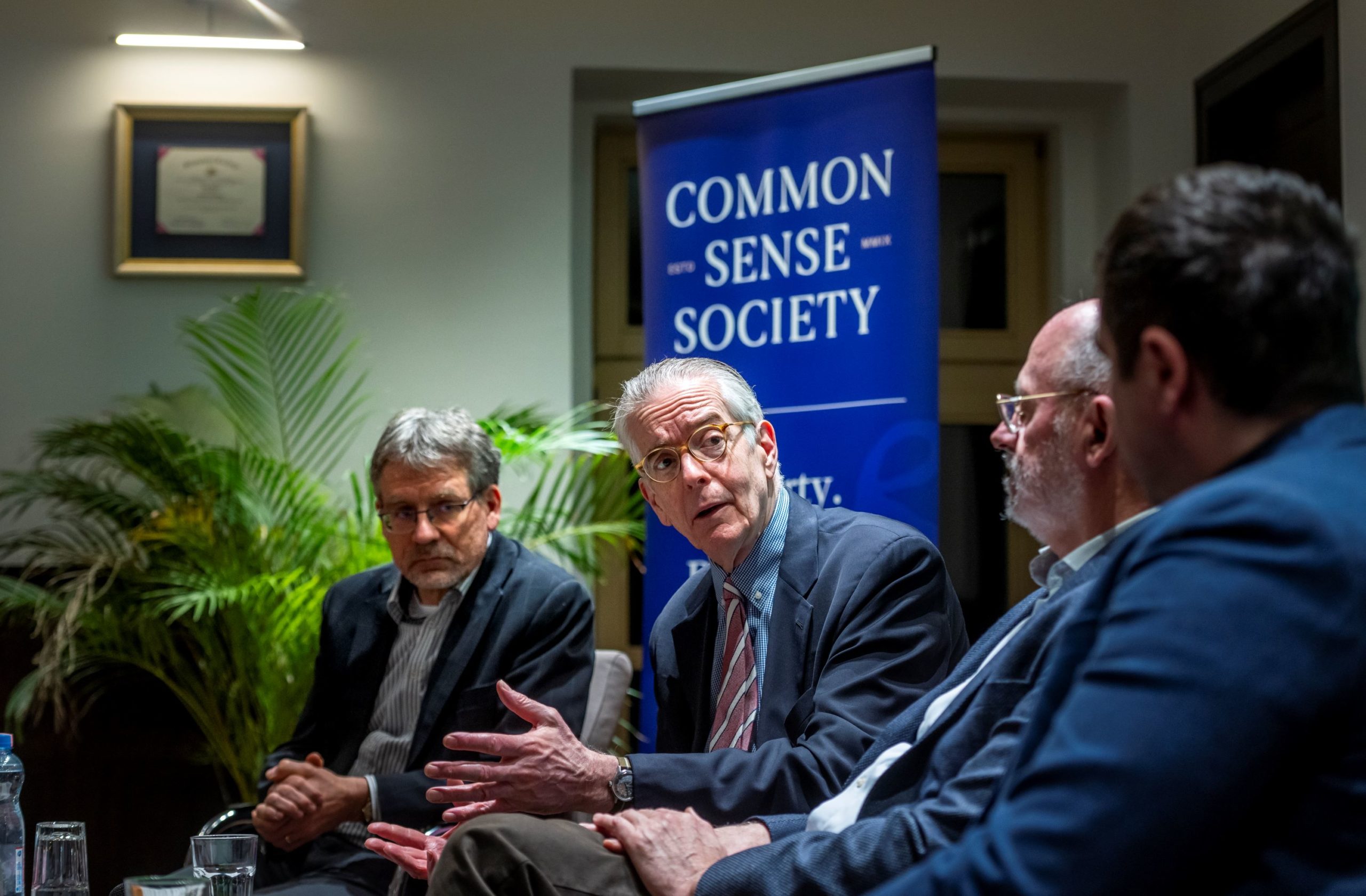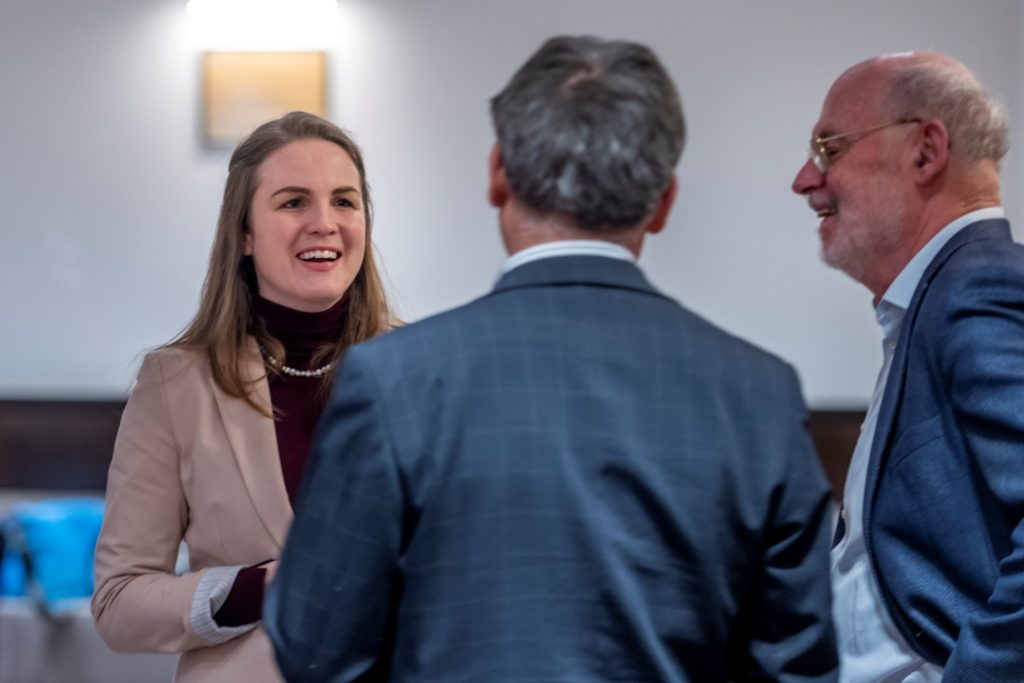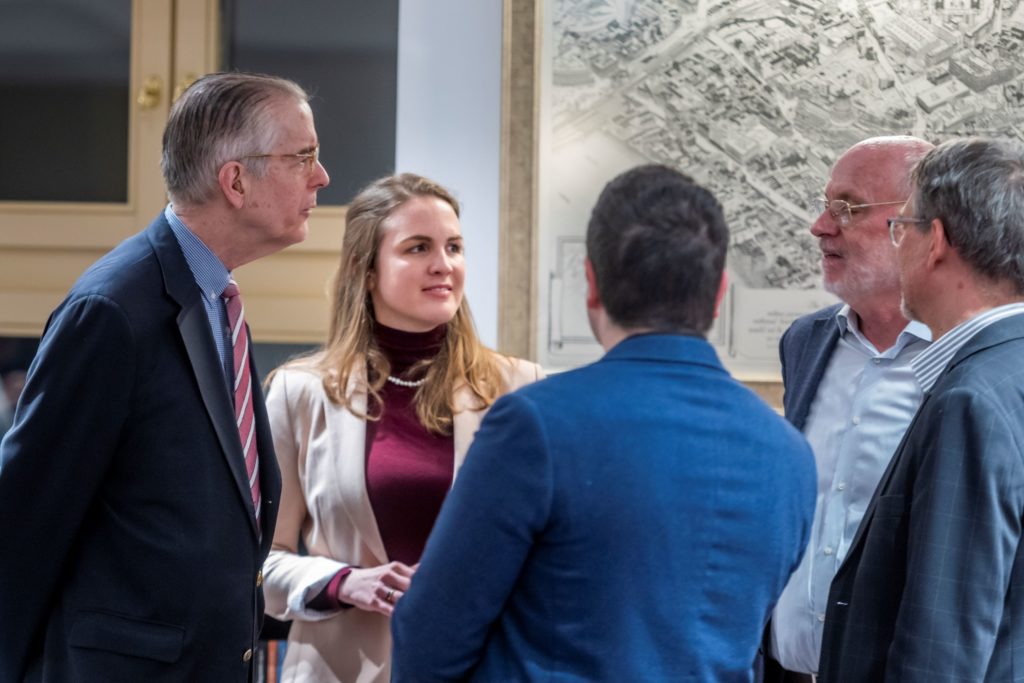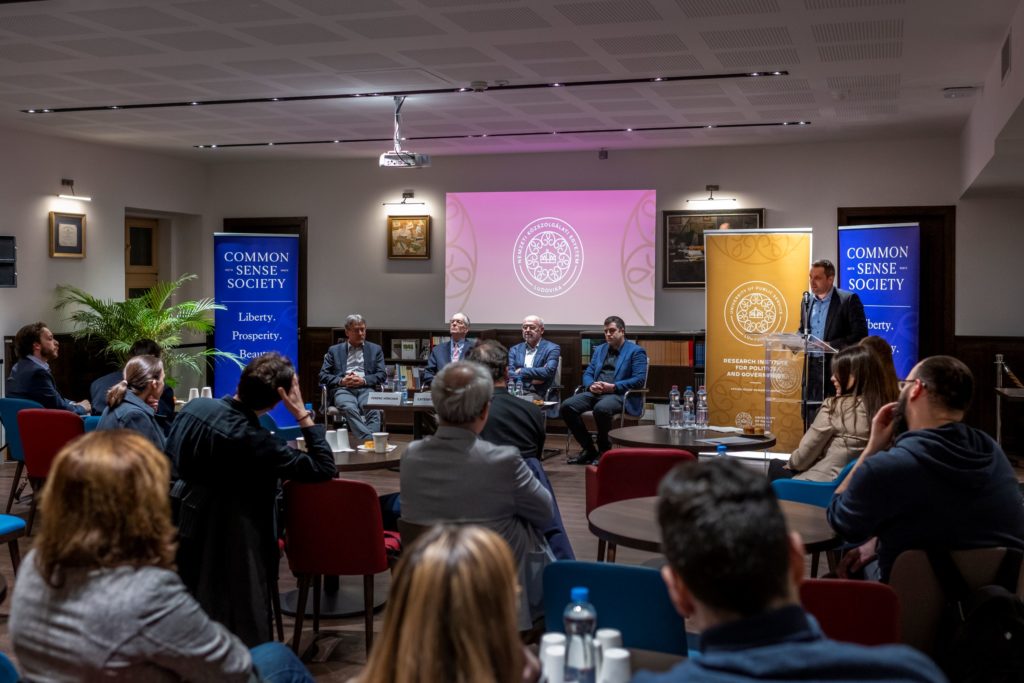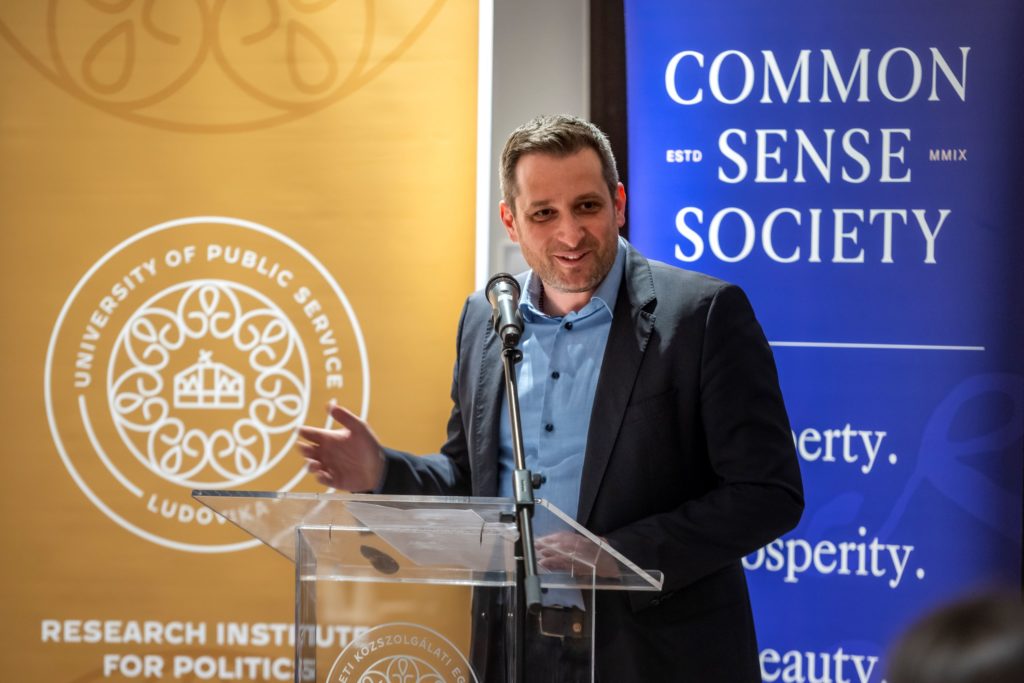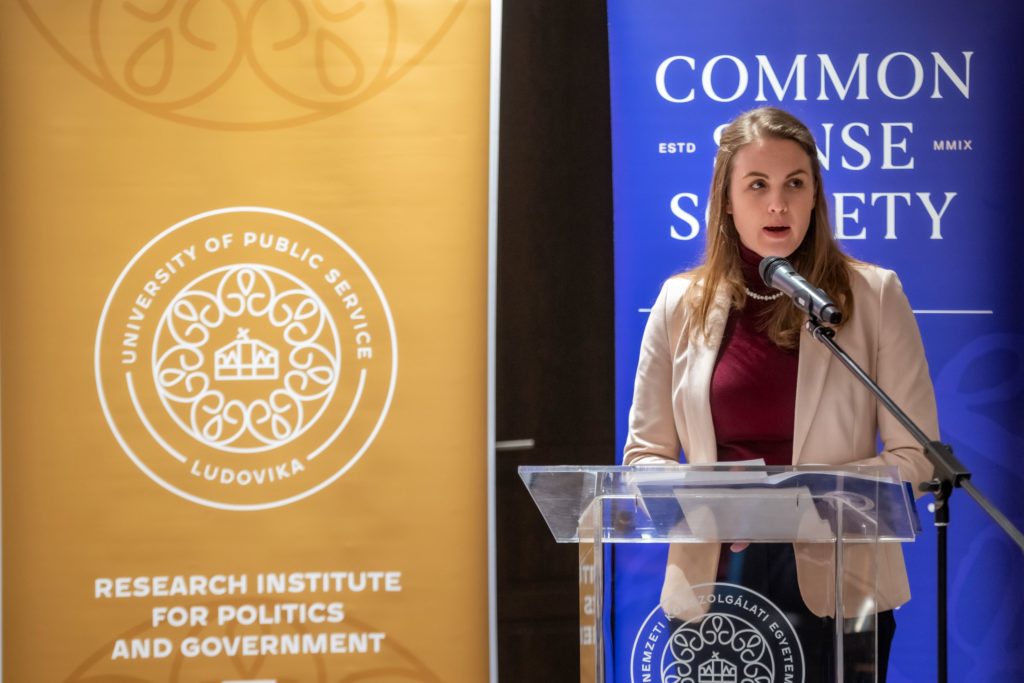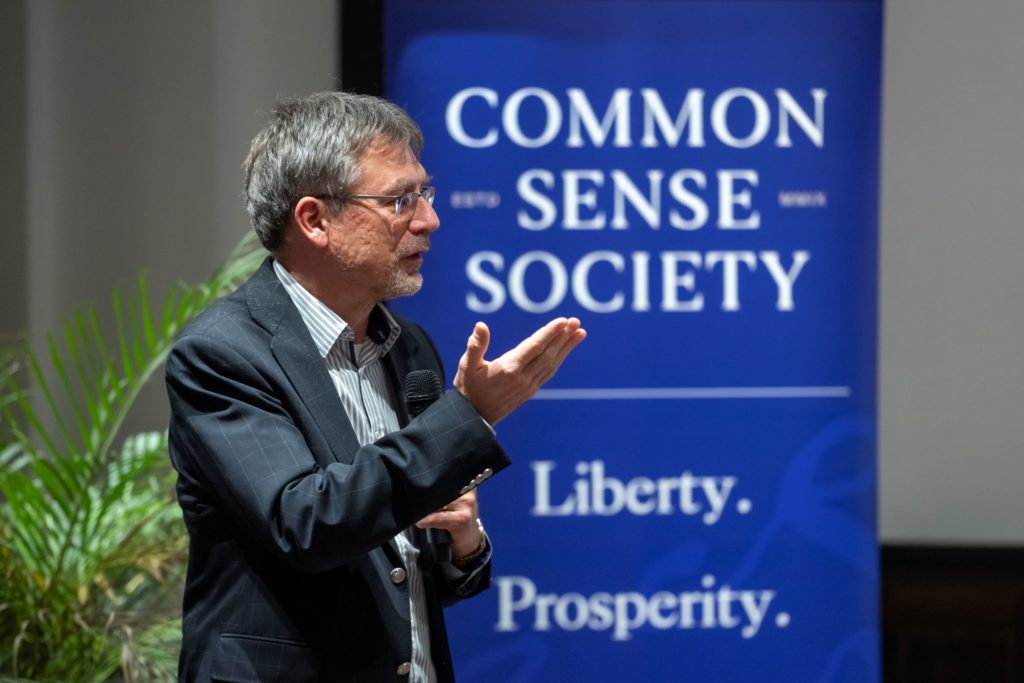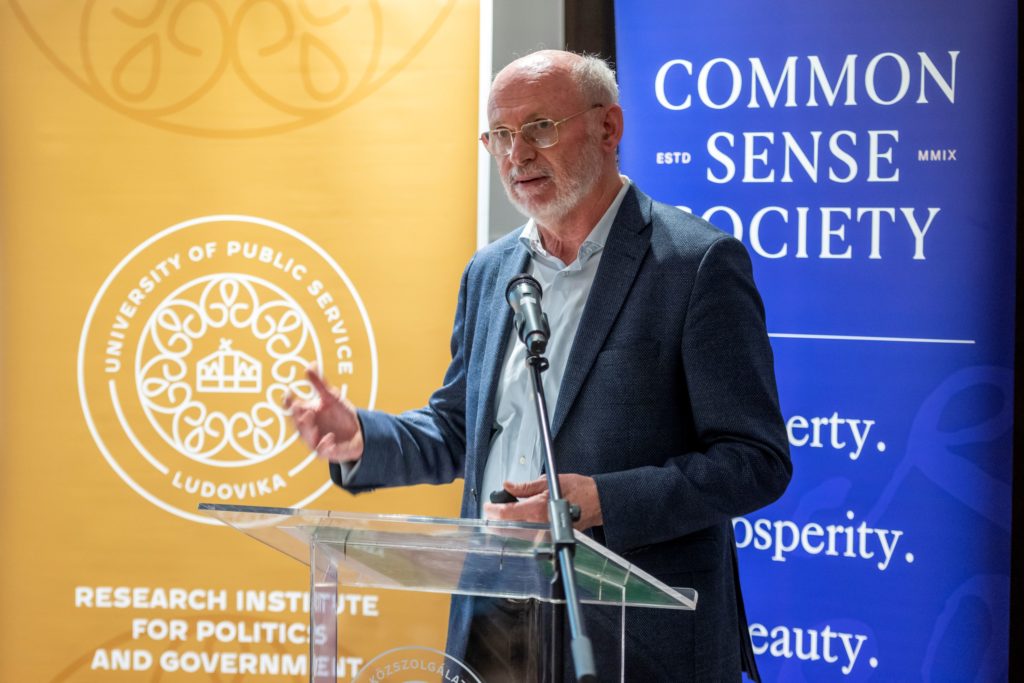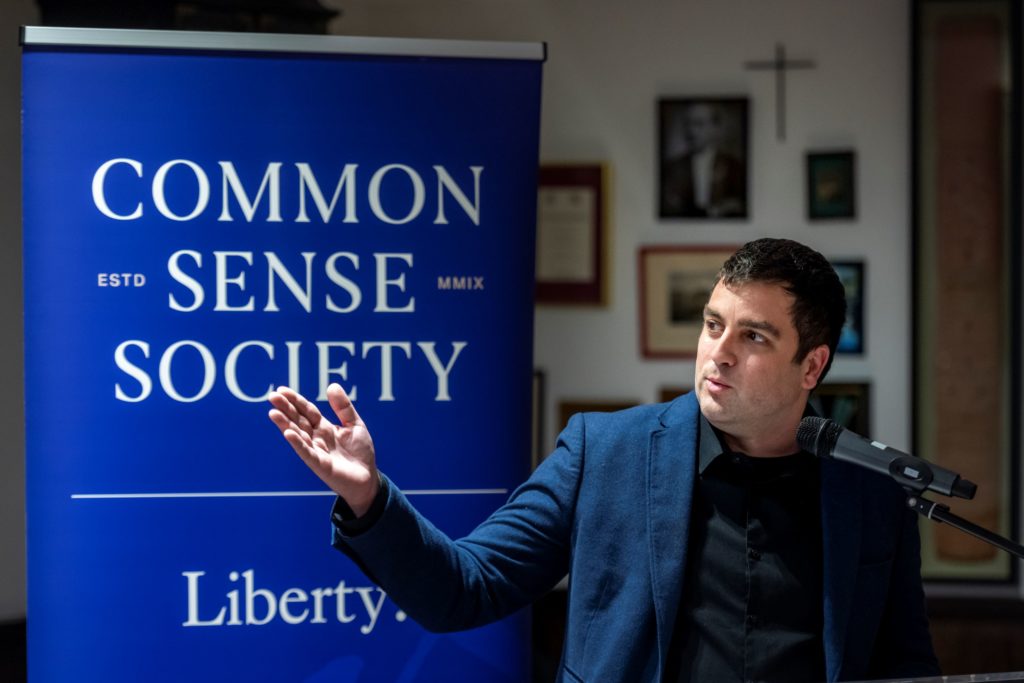The Classical Tradition in Architecture: Once Normative, Now Counter-Cultural
A lecture by Mr. Catesby Leigh at the University of Public Service, Hungary
On February 22, 2023 Common Sense Society–Hungary (CSS–HU) in collaboration with the Research Institute for Politics and Government of the National University of Public Service held a public event on the cultural significance of classical architecture at the John Lukács Café of the University. The event entitled Architectural traditions and modernism in the United States and Central Europe—a Transatlantic Conversation brought together acclaimed experts and scholars to reflect on the history of traditional and modernist architecture since the 19th century on the two sides of the Atlantic, as well as the prospects of pleasing and humanistic building design in the present day.
Speakers and the audience were welcomed by Dr. Bernát Török, director of the Eötvös József Research Centre and by Ms. Orsolya Domaniczky, director of Common Sense Society–Hungary, who introduced CSS’s mission to promote beautiful architecture.
American architectural critic Mr. Catesby Leigh arrived in Hungary upon the invitation of CSS–HU to present his lecture The Classical Tradition in Architecture: Once Normative, Now Counter-Cultural. He showed how American Beaux-Art design, with its roots in ancient Greek and Roman architecture, evolved since the Columbian World Fair in 1893, but was replaced by modernism in the postwar period. Mr. Leigh’s presentation was followed by reflections from art historian Prof. József Sisa on how Budapest transformed from a dusty city to a metropolis. Architect and researcher Dr. Domonkos Wettstein showcased how Hungarian modernist architects made genuine efforts to incorporate traditional patterns and motives into novel design plans.
The discussion was moderated by CSS faculty member, historian of political thought and philosopher of art Prof. Ferenc Hörcher.
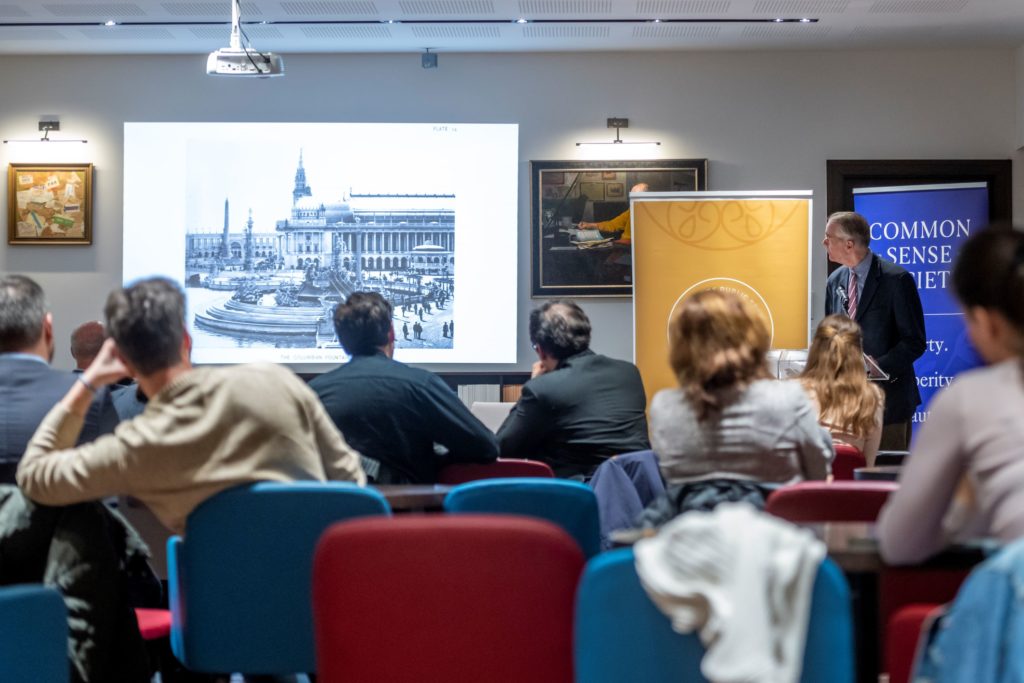
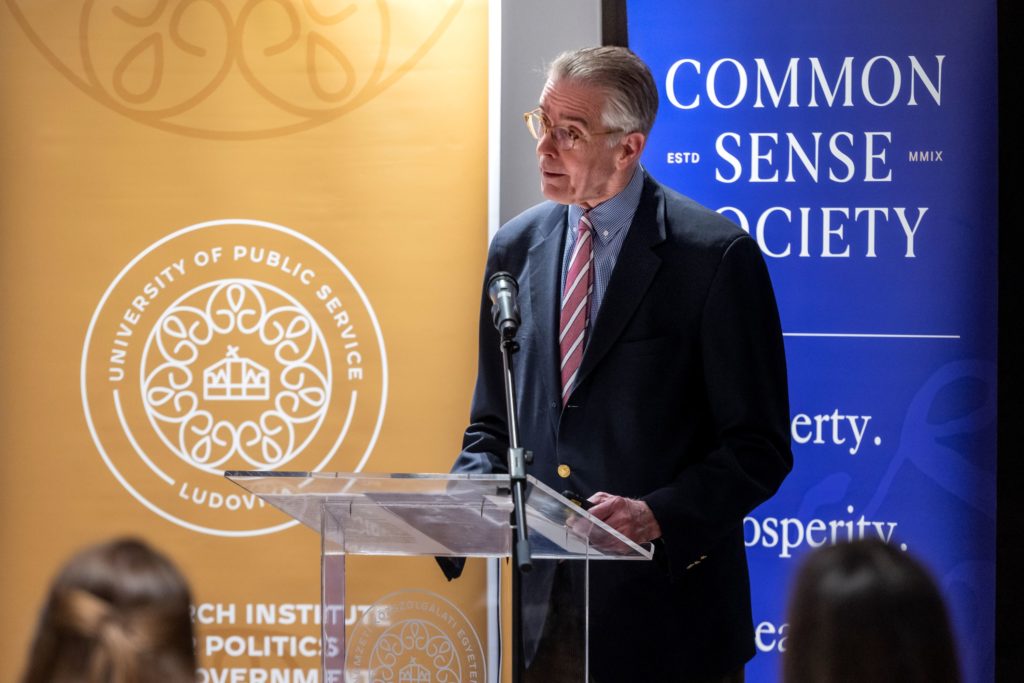
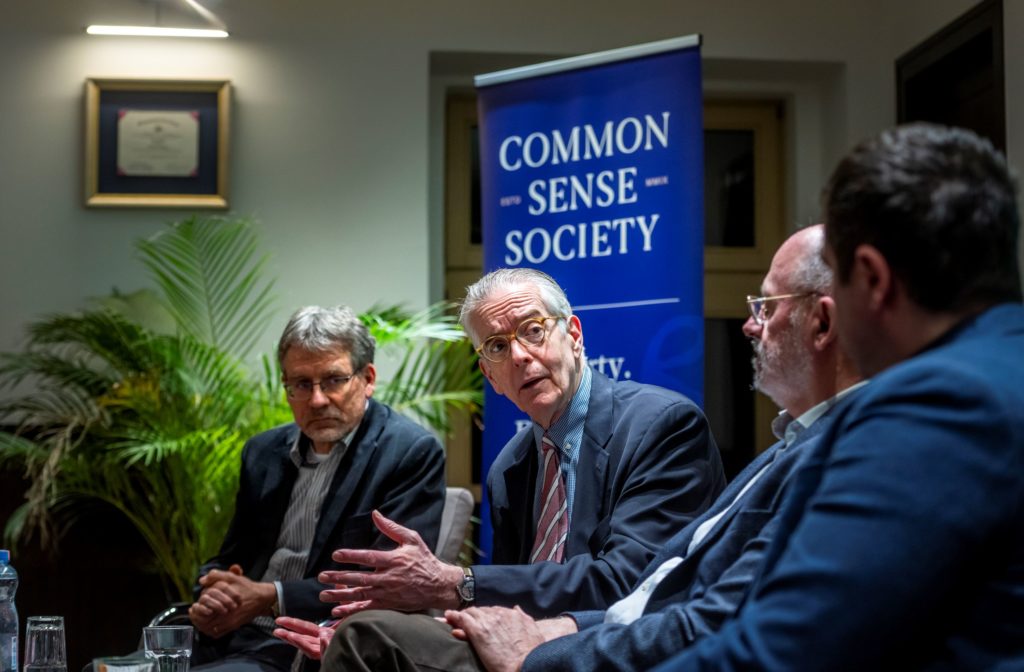
A Common Sense Society Magyarország (CSS–HU) is a nonprofit organization that promotes liberty, prosperity, and beauty through education and public discourse. The educational fellowships, curriculum resources, publications, cultural programs, community initiatives, and national campaigns of CSS–HU illuminate the enduring ideas that have transformed the course of human history for the better. CSS–HU does not receive funding from governments or political parties.
